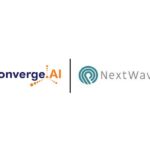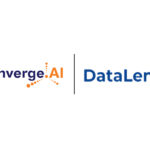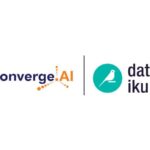
Modern Healthcare with AI: Leveraging EHR for Predictive Intelligence
Healthcare is undergoing a major transformation, driven by patients’ increased expectations for precision care and the accelerating force of data-driven intelligence. Every individual now seeks treatment molded to their individual needs. To deliver, healthcare providers hold a significant asset called Electronic Health Records (EHR).
By combining EHR data with AI/ML, predictive analytics opens doors to highly personalized treatment plans that improve patient outcomes, boost operational efficiency, and redefine the business of healthcare.
Why Do Personalized Healthcare Matters?
Patients today expect care pathways that reflect their medical history, lifestyle, and genetic profile. Predictive analytics makes this possible by using EHR data to forecast health outcomes before issues become serious.
For patients, this means:
- Early detection of potential conditions
- Customized treatment and medication plans
- Better financial planning with fewer unexpected procedures
- Confidence that their care is uniquely designed for them
For providers and healthcare businesses, the benefits include:
- Increased patient satisfaction and retention
- Proactive resource allocation and streamlined operations
- Enhanced care results that enhance reputation
- Improved research powered by data insights
The Value of EHR Data in Predictive Analytics
EHRs capture years of clinical, diagnostic, and treatment information across multiple encounters. These records are of course valuable, but when analyzed through AI-driven algorithms, they become capable of revealing intricate patterns.
In fact, predictive models built on EHRs can detect up to 95% of health anomalies in advance. While doctors traditionally spot many issues manually, AI can amplify this capability across millions of records simultaneously, providing faster, data-backed insights making it easier for the doctor to make more accurate decisions and plans.
ML models continuously learn from incoming patient data, improving the accuracy of predictions over time, and enabling highly personalized healthcare monitoring and treatment recommendations.
The Model Lifecycle – From Prediction to Continuous Learning
True predictive intelligence is not a one-time model deployment; it’s a continuous learning system. Modern MLOps frameworks ensure models are versioned, retrained, and monitored for drift as new patient data flows in. This allows healthcare systems to maintain accuracy while adapting to evolving medical knowledge, population changes, and treatment standards.
A well-governed AI lifecycle integrates data scientists, clinicians, and compliance officers into one loop, ensuring every model decision remains explainable, traceable, and aligned to clinical value.
Use Cases of AI + EHR in Personalized Healthcare
|
Use Case |
How AI + EHR Helps |
Benefits for Patients |
Benefits for Providers |
|
Early Disease Detection |
Identifies risk markers for conditions like cancer, diabetes, or heart disease from patient history and lifestyle data |
Early interventions, reduced treatment burden |
Reduced emergency cases, improved population health metrics |
|
Personalized Treatment Plans |
ML recommends medications, therapies, and lifestyle changes tailored to the individual |
Improved treatment adherence, faster recovery |
Higher patient satisfaction, fewer readmissions |
|
Predictive Care Pathway Optimization |
AI suggests the most effective sequence of diagnostics and treatments based on similar cases |
Shorter treatment timelines, fewer redundant tests |
Lower costs, more efficient resource allocation |
|
Chronic Disease Management |
Continuous monitoring of conditions like hypertension or COPD using integrated EHR and wearables |
Ongoing care adjustments reduce complications |
Better long-term disease control at lower costs |
|
Financial & Insurance Planning |
Predictive models estimate future healthcare costs, helping patients plan better |
Reduced financial stress, transparency |
Providers gain consistent revenue and manage resources effectively |
|
Clinical Research Acceleration |
Identifies patient cohorts with specific traits from large EHR pools |
Access to innovative treatments, faster trial participation |
Accelerates R&D, fosters breakthroughs |
Overcoming Today’s Challenges
1) Older Technology Systems:
A major challenge to bringing AI into everyday healthcare is the dependence on outdated technology. Many hospitals still rely on systems-built years ago that are slow, rigid, and unable to share information easily. Moving to modern cloud-based platforms is not just an upgrade but the foundation for predictive healthcare. When information flows freely and securely, doctors and nurses can act on insights in real time instead of losing hours to old tools.
2) Physician Shortage:
The global shortage of physicians makes this transformation even more important. AI cannot replace their expertise, but it can extend their capacity by reducing the weight of routine work. By handling documentation, identifying early risk signals, and organizing patient histories, AI allows doctors to focus on complex decisions and give patients the reassurance they need. This support enables caring for more people while maintaining high standards of quality.
3) Empowering Nurses:
Nurses also benefit greatly from these advancements. As the first point of contact for patients, they manage charts, track results, and coordinate care. AI lightens this load by connecting records, highlighting urgent changes, and identifying patients who need closer attention. It helps nurses access information faster and spend more time with patients i.e. listening, guiding, and offering comfort. For hospitals, it means lower burnout and a healthier workplace that strengthens the entire care journey.
Our Experience in Healthcare AI
The success of healthcare AI use cases ultimately depends on the depth and quality of patient datapoints. Before applying it in critical areas like healthcare, providers must ensure their data foundations are reliable and comprehensive.
We were fortunate enough to work with a leading hospital management system provider to digitize 150 million medical records using an AI based OCR model. The solution converted paper and scanned files into digital text and made them searchable, cutting turnaround times dramatically while ensuring HIPAA compliance. The project delivered cost savings of nearly two thirds and gave caregivers faster access to the right information when and where they needed it. This was the essential first step, creating a strong digital foundation. Once the data became structured and accessible, the real outcomes of AI in predictive healthcare started to come into view.
The future of healthcare will be shaped by how intelligently we leverage EHR data. Connect with us to explore how AI-driven insights can help your organization deliver better outcomes and strengthen patient retention.
Tags:
BlogRecent Blogs
- The AI-Native SDLC: Intelligent Engineering for Speed and Scale
- India’s Union Budget 2026 Surfaces Four Strategic Advantages for Global AI Leaders
- Agentic Workflows: Turning Enterprise Intent into Governed Execution
- 5 Things to Get Right Before Building Data Pipelines for Agentic AI
- Why Metadata-Driven Data Engineering Matters for Enterprise AI
- The AI-First GCC Model Redefining Enterprise Innovation in 2026
- From Data to Dialogue: Using AI to Co-Create Strategy
Recent News
- Konverge AI Partners with NextWave to Set Up its Global Capability Center (GCC) in India
- Konverge AI Strengthens Ties with Microsoft, Listing DataLens on Azure Marketplace
- Konverge AI Moves from Challenger to Seasoned Vendor in AIM PeMa Quadrant for GenAI Services 2024
- Konverge AI Achieves ISO 27001, Strengthens Enterprise Data Security
- Konverge AI Join Forces with Dataiku to Accelerate and Scale AI Across Enterprises













